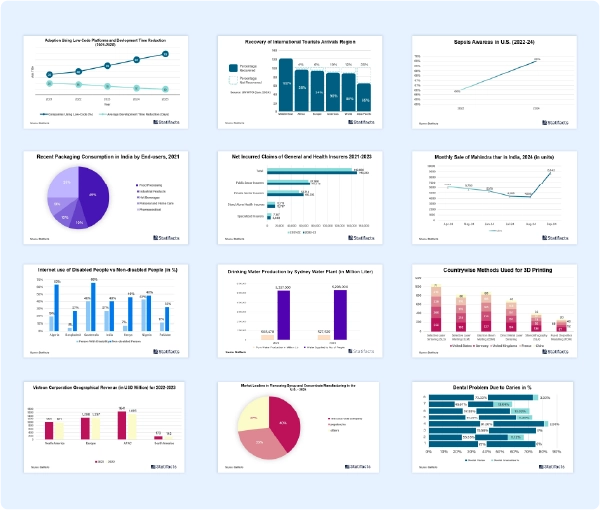The U.S. biopharmaceuticals market size is worth around USD 163.19 billion in 2024 and is predicted to hit around USD 635.37 billion by 2034, growing at a CAGR of 14.56% from 2024 to 2034.
U.S. Biopharmaceuticals Market Report Highlights
- The monoclonal antibodies segment accounted for the largest market share of 31% in 2024.
- The vaccine segment is estimated to be the fastest growing during the forecast period.
- The oncology segment dominated the global U.S. biopharmaceuticals market in 2024.
- The cardiovascular disease is estimated to be the most opportunistic segment during the forecast period.
The U.S. biopharmaceuticals market refers to producing, distributing, and applying a biological macromolecule or cellular component, like a blood product, used as a pharmaceutical. Biopharmaceuticals are therapeutic molecules derived by recombinant DNA technology and produced in plants, insects, yeast, bacterial or mammalian cell expression systems, hybridomas, or primary or continuous cell lines. Many traditional medications have a chemical structure that is not found in the human body. Biopharmaceutical compounds or drugs are structurally similar to human compounds. The structural similarity with naturally occurring cells gives biopharmaceuticals the potential to cure diseases instead of simply addressing the symptoms. The benefits of biopharmaceuticals over traditional drugs include global regulatory compliance, technological expertise, competitive pricing, biodegradability and eco-friendliness, reduced side effects, personalized medicine, increased efficacy, and precision and targeting, which drive the growth of the U.S. U.S. biopharmaceuticals market.
Rising demand for biopharmaceuticals contributes to the growth of the U.S. biopharmaceuticals market. Advances in gene therapy, personalized medicine, and biologics drive the market's growth. Advancements in cell therapies, vaccines, and monoclonal antibodies are transforming treatments. The demand for biologics in rare and chronic diseases is increasing globally, boosting the market expansion. The potential for more customized treatments, fewer side effects, and increased treatment effectiveness and life expectancy help the market’s growth. This includes increased product demand for better healthcare outcomes and enhanced patient experience. Biopharmaceuticals are made from biological sources. The biopharmaceutical industry is crucial for developing new medical cures and treatments, lowering the cost of care, and eventually leading to better health for patients globally.
The new regulations that drive greater partnerships between healthcare providers and pharmaceutical manufacturers contribute to the growth of the biopharmaceutical market. Collaboration is important in the biopharmaceutical industry. A few benefits of collaboration are enhanced patient care, reduced costs, accelerated drug development, and increased knowledge sharing. As the pharmaceutical landscape continues to increase, partnerships will play an increasingly important role in shaping the industry's future. By collaborating internally or externally, biopharmaceutical companies can pool their resources, share costs, and bring together efforts on similar tracks. Sharing of data and results at the time of the preclinical research stage helps the growth of the market.
Artificial intelligence (AI) based techniques can analyze large-scale biomedical data to identify existing drugs that may have therapeutic potential for different types of diseases. AI accelerates the drug discovery processes and reduces costs by repurposing approved drugs for new indications. AI algorithms can predict how different molecules interact with biological targets, helping to identify which compounds have high potential for therapeutic benefit. AI plays an important role in predicting drug efficacy and toxicity. AI helps revolutionize drug discovery by generating better drug candidates, accelerating timelines from discovery to preclinical candidate stage. These AI-based factors help the growth of the U.S. biopharmaceuticals market. SK Biopharmaceuticals is launching its artificial intelligence (AI) based epilepsy management platform business in the North American market.
The increasing research and development activities to develop effective and innovative therapies create opportunities for the growth of the biopharmaceutical market. The potential of technology in research and development is high. Enhancing the precision of drug development, accelerating timelines, and reducing costs will help improve and transform the biopharmaceutical industry. Biopharmaceutical research and development is key in discovering new or enhanced methods to improve therapeutic approaches and address unmet medical requirements.
This increases overall health and ensures healthcare professionals may provide better care for their patients. Research and development can lead to improvements in business. This can be in new products and services, enhanced processes, and new ways to interact with customers. These advancements can result in lower costs and greater profits. The active roles of regulatory authorities such as the FDA and EMA in monitoring and providing approvals for the many new drugs to treat a range of diseases drive the growth of the U.S. biopharmaceuticals market.

